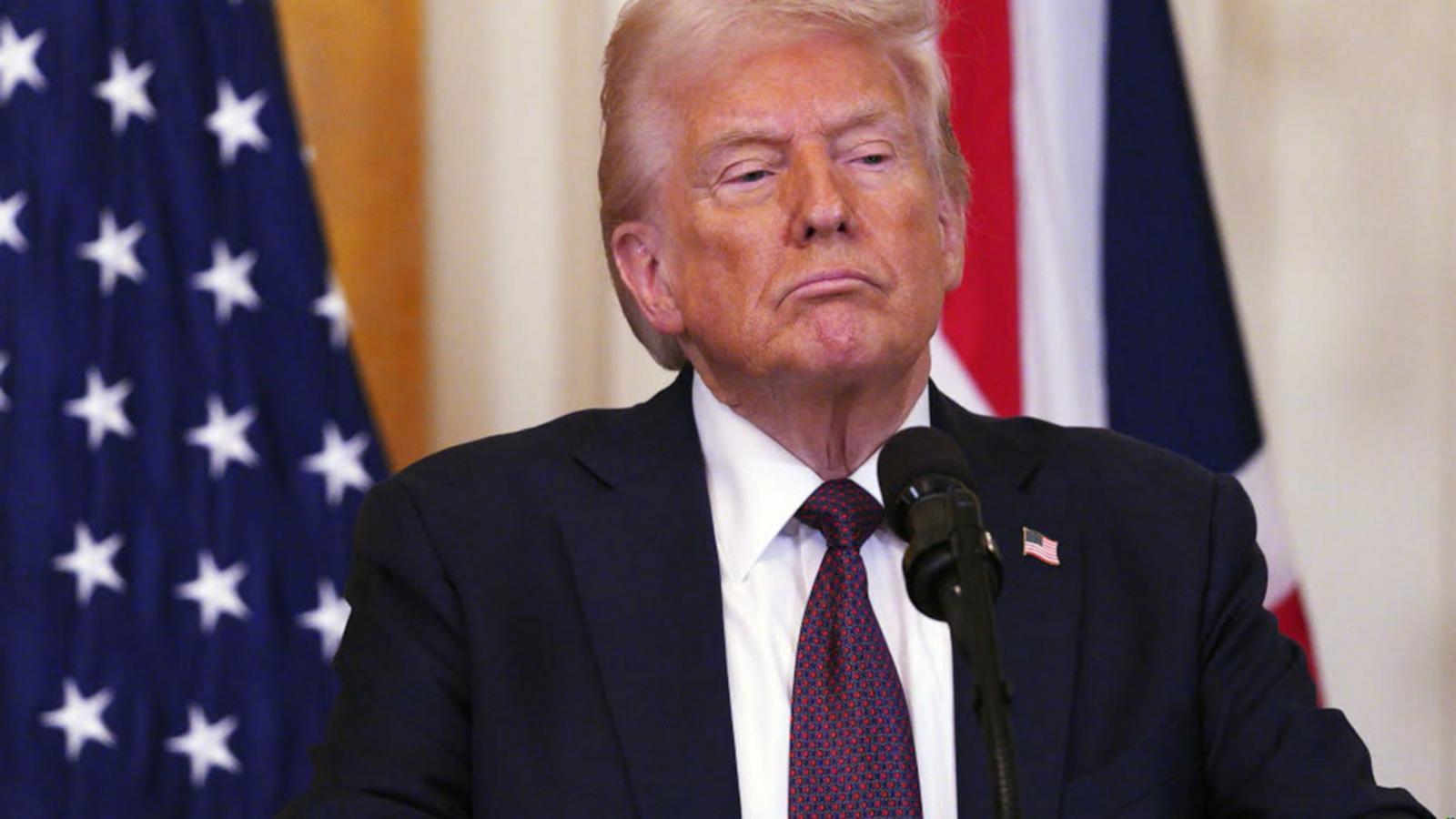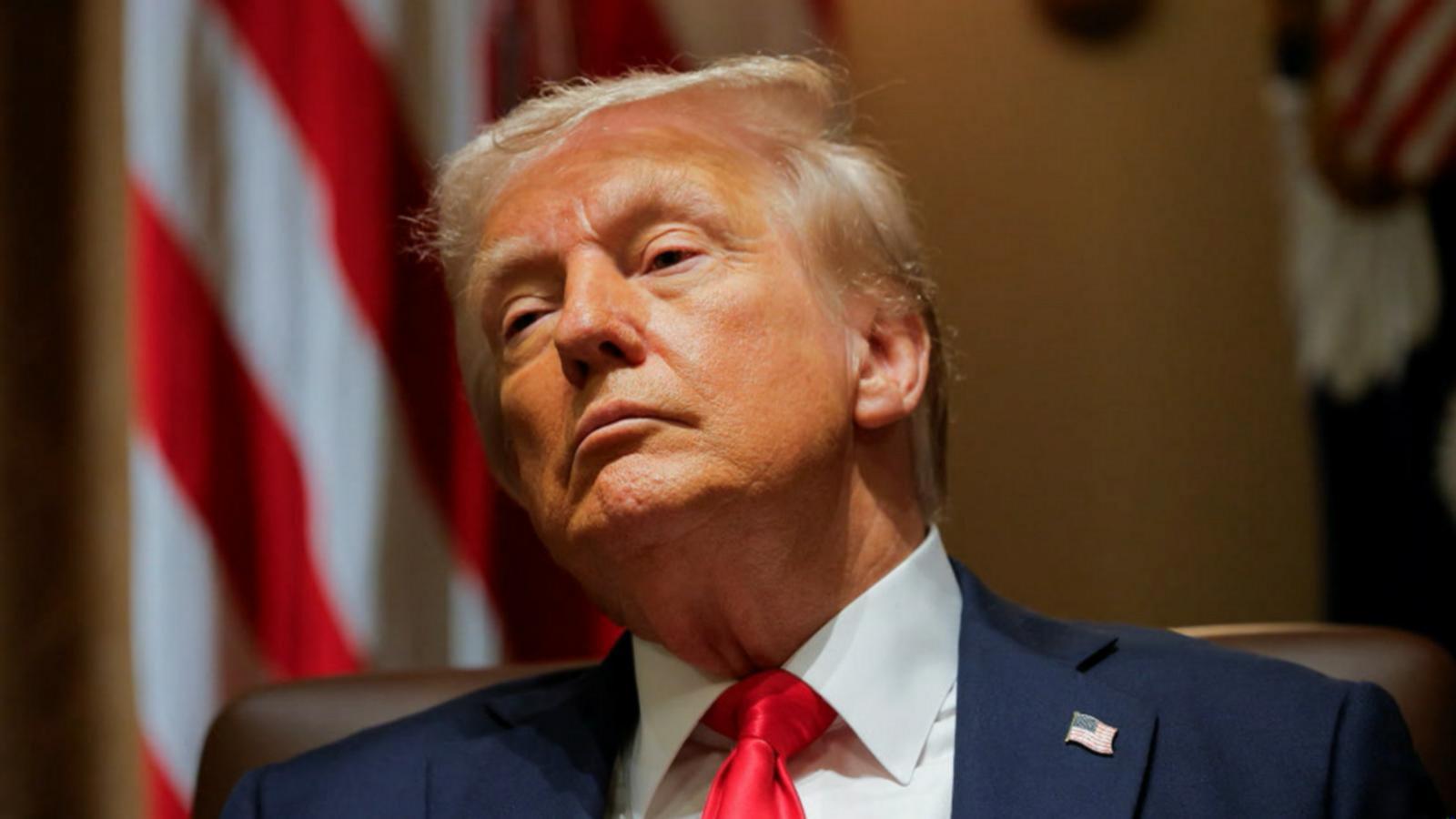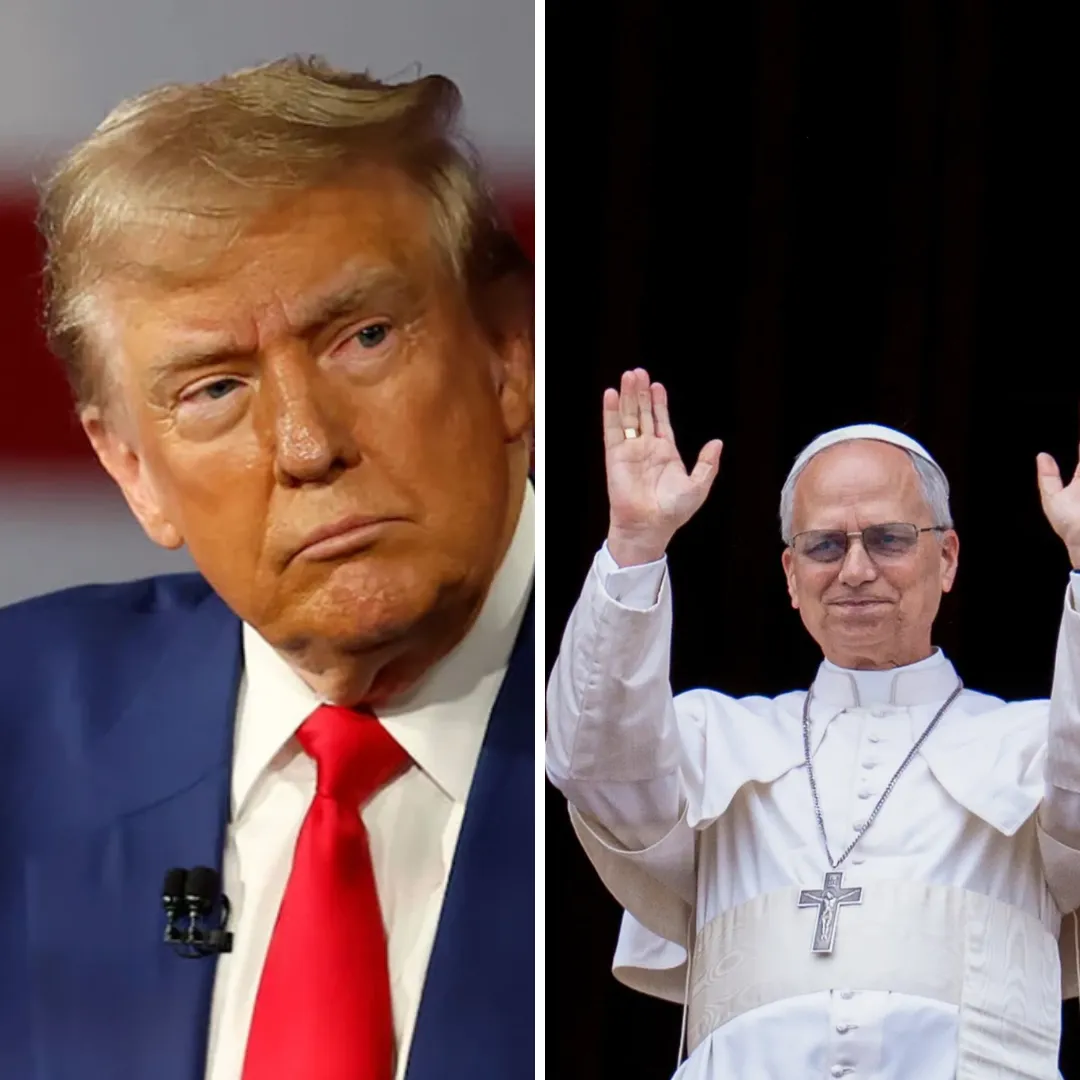Former President Donald Trump has once again taken to Truth Social to defend his administration's controversial deportation of Kilmar Abrego Garcia, a Salvadoran national who was removed from the United States during Trump’s presidency.
The move has become the subject of a growing legal and political storm, with federal courts, Democratic lawmakers, and immigration advocates clashing with the former president and his allies over the circumstances of the deportation and Abrego Garcia’s alleged criminal history.
In a post published Friday morning, Trump shared a photo of Abrego Garcia’s tattooed hand, claiming the image provides clear evidence of gang affiliation. The photo displays tattoos of a marijuana leaf, a cross, a skull, and a smiley face on the man’s knuckles.
According to Trump, this image should convince Americans that Abrego Garcia does not belong in the country.
"This is the hand of the man that the Democrats feel should be brought back to the United States, because he is such 'a fine and innocent person'," Trump wrote. "They said he is not a member of MS-13, even though he’s got MS-13 tattooed onto his knuckles, and two Highly Respected Courts found that he was a member of MS-13, beat up his wife, etc."
Trump emphasized his belief that his presidency was a mandate from the American people to remove individuals he labeled as dangerous from the country.
"I was elected to take bad people out of the United States, among other things," he wrote. "I must be allowed to do my job. MAKE AMERICA GREAT AGAIN."
The post follows a week of intense media attention and political activity surrounding the case. Earlier in the week, Senator Chris Van Hollen, a Democrat from Maryland, visited El Salvador to meet with Abrego Garcia in person.
Speaking to reporters after his return, Van Hollen strongly criticized the Trump administration’s handling of the case and accused the former president of misrepresenting the facts.
"When I told him that his wife and family sent their love and were fighting for Kilmar to return home every day, he said that he was worried about all of you, that was his response," Van Hollen told reporters.
"He asked how his children were doing. It was deeply moving. This is a man whose family loves him, who has a home here in Maryland, and who was deported in error. The Trump administration wants to flat out lie about what this case is about."
The senator said the administration had not complied with multiple court orders, including rulings from the federal district court, the Fourth Circuit Court, and even the Supreme Court, which instructed the government to facilitate Abrego Garcia’s return to the United States.
"In other words, put up in court or shut up," Van Hollen said. "If they have evidence that Kilmar is a member of MS-13, they should present it to a judge under oath. So far, they have failed to do that."
Legal experts and immigration rights advocates have pointed to serious flaws in how the deportation was carried out. According to court filings, Abrego Garcia was mistakenly removed from the U.S. due to what the Department of Homeland Security has called an "administrative error."
Since then, a legal battle has ensued over whether the government must bring him back and allow him to continue his immigration proceedings from within the country.
The Trump administration, in its original defense of the deportation, cited a confidential informant’s tip suggesting that Abrego Garcia was affiliated with the notorious MS-13 gang, which has been designated as a terrorist organization by the U.S. government. However, no publicly available court documents have substantiated that claim.
Abrego Garcia’s family and attorneys have consistently denied any gang involvement and have argued that the allegations are based on hearsay and uncorroborated reports. His wife, Jennifer Vasquez Sura, did file a civil protective order four years ago, in which she accused her husband of punching and scratching her.
While that document has been referenced by the administration in public statements, it has yet to be introduced in any court as formal evidence of criminal behavior or gang affiliation.
“Everyone deserves a fair hearing under the law,” said Maria Torres, an immigration attorney based in Washington, D.C., who is familiar with the case. “Deportation, particularly when it is alleged to have occurred in error, is one of the most severe actions the government can take against a person. To do so without due process and then to refuse compliance with federal court rulings is a gross violation of both the individual’s rights and the principles of our legal system.”
The case has become a flashpoint in the ongoing national debate over immigration policy, due process, and executive power. During his presidency, Trump made a series of aggressive moves targeting undocumented immigrants and individuals suspected of criminal activity.
Critics say his administration often bypassed legal standards in pursuit of its goals. Supporters of Trump argue that the former president was acting in the interest of national security and was fulfilling his promise to remove individuals with gang ties and criminal records.
“President Trump was elected to protect American citizens, and that’s exactly what he did,” said Mark Caldwell, a spokesperson for a conservative advocacy group that supports strict immigration enforcement. “Whether people like it or not, MS-13 is a real threat, and when someone has tattoos like that and a violent history, it’s not unreasonable to take action.”
But others argue that the tattoos alone cannot serve as conclusive proof of gang involvement, especially in legal proceedings.
“Plenty of people have questionable tattoos for a number of reasons,” said Professor Ana Del Valle, a sociologist who studies Central American migration and gang dynamics. “In places like El Salvador, tattoos can carry meanings that aren’t necessarily about gang membership.
Sometimes they are protective symbols, family emblems, or things people did when they were very young. Without proper context, those symbols don’t hold up in a court of law.”
According to Del Valle, labeling someone as part of a gang based on physical appearance or unverified testimony has led to numerous cases of wrongful deportation and can be particularly dangerous when dealing with vulnerable immigrant populations.

The broader implications of the case have led to renewed calls for comprehensive immigration reform and clearer safeguards against administrative errors in deportation proceedings. Advocacy groups say Abrego Garcia's case is far from isolated.
“There are dozens, if not hundreds, of cases where individuals have been removed from the country under questionable circumstances,” said Elena Morales, executive director of Immigrant Justice Watch, a nonpartisan organization that monitors immigration court proceedings.
“Some are fathers, mothers, students, workers—people who have lived in the U.S. for years, contributed to their communities, and are suddenly disappeared by the system. What makes this case different is the level of attention and the blatant refusal to follow court orders.”
Abrego Garcia remains in a prison in El Salvador, awaiting news of his possible return. His attorneys continue to argue that his due process rights were violated and that he should be returned to the U.S. to continue his legal proceedings.
Back in Maryland, his family has been vocal about their desire to reunite. His children, who are U.S. citizens, have participated in rallies and written letters to lawmakers asking for their father’s return.
“He would drive us to school, help with homework, and cook dinner,” said his daughter, 13-year-old Emily, in a recent community gathering. “Now we don’t know if we’ll ever see him again. He’s not a criminal. He’s our dad.”

As the legal standoff continues, the case of Kilmar Abrego Garcia has come to symbolize a deeper divide in American politics—between those who view immigration enforcement as a matter of national security and those who see it as a question of human rights and due process.
For now, the courts have spoken. But whether the former president and his allies will comply with those rulings remains an open question. And for one Maryland family, the wait for justice—and reunion—continues.





